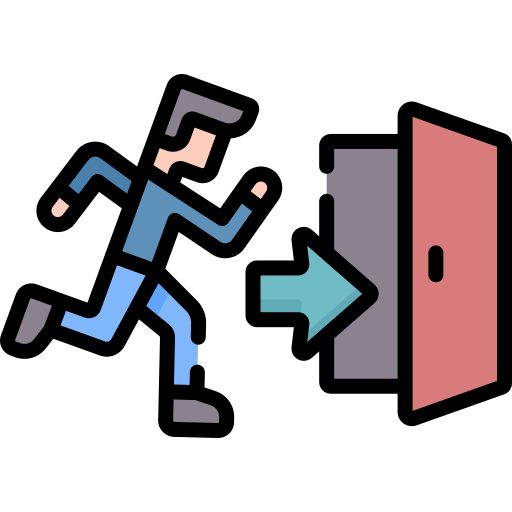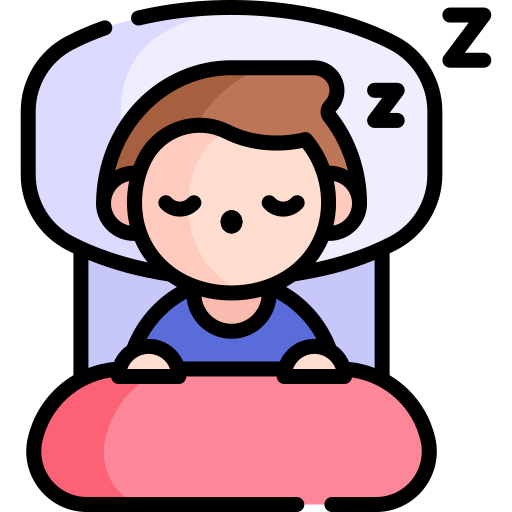You know you should be asleep, but instead you’re watching "just one more episode," scrolling endlessly, or deep-diving into random YouTube videos. Sound familiar?

That urge to delay bedtime, even when you know you’ll regret it the next day, is called revenge bedtime procrastination. It happens for many reasons and it can cost you more than just a good night’s sleep.
Take back your time without sacrificing rest!
What Is Revenge Bedtime Procrastination?
It’s the act of delaying sleep even though you’re tired and know it’ll affect you tomorrow. There’s no external reason keeping you up; you’re doing it on purpose.
Here’s the twist: it’s not just about bad habits. It’s often a way to reclaim a sense of control when your days feel jam-packed or out of your hands.
That’s where the “revenge” part comes in — you’re staying up late as payback for a stressful or unfulfilling day.

Knowledge Check
It’s 11:45 PM. After a long day filled with work, errands, and helping your family, you finally have some time to yourself. Even though you're exhausted and have an early meeting tomorrow, you decide to scroll through social media and start a new show.
Quiz
Which of the following best describes this situation?
Why Do People Do It?

1. Lack of Free Time During the Day
If your entire day is filled with school, work, chores, or family duties, you may feel like nighttime is your only chance to do something for yourself. Instead of sleeping, you try to squeeze in enjoyment at the expense of rest.

2. The Need to Unwind and Decompress
Late-night Netflix, games, or endless scrolling can feel like a reward after a stressful day. But this “unwinding” often overstimulates your brain, making it even harder to sleep.

3. A Sense of Control
When life feels overwhelming, staying up late can give you the illusion of taking back your time. But in reality, it steals time from tomorrow; you’re borrowing energy from the future you.

4. Escapism
Sometimes, people delay bedtime because they’re avoiding something, such as emotions, stress, or responsibilities. It’s easier to distract yourself than to confront what’s bothering you.
What Happens When You Keep Doing It?

1. Sleep Debt Adds Up
Each late night chips away at your total rest. You might not notice it right away, but over time, it leads to brain fog, irritability, low energy, and weakened memory.

2. Health Starts to Suffer
Chronic sleep loss is linked to serious health issues like high blood pressure, weakened immunity, and even mental health problems like depression and anxiety.
You’re not just losing sleep, you’re losing resilience.

3. Daytime Productivity Crashes
When you're tired, everything feels harder. Your focus, decision-making, and mood take a hit, which can make the next day even more stressful, and the cycle continues.
What Can You Do to Break the Cycle?

1. Set a Consistent Sleep Schedule
Go to bed and wake up at the same time every day, even on weekends. This trains your body’s natural clock and helps you feel sleepy at the right time.

2. Create a Calming Bedtime Routine
Wind down with non-stimulating activities like reading a book, journaling, stretching, or listening to calming music. Make this a sacred ritual that signals: It’s time to rest.

3. Avoid Screens 1 Hour Before Bed
The blue light from phones and TVs tricks your brain into staying alert. Try swapping screens for a book or a podcast that doesn’t hype you up.

4. Cut Back on Caffeine and Alcohol at Night
Caffeine lingers in your system for hours. Even alcohol, though it may make you drowsy, disrupts your sleep quality later in the night. Stick to water or herbal tea in the evening.

5. Start Small
Don’t aim for a 10 p.m. bedtime if you usually sleep at 2 a.m. Try moving your bedtime up by 15–30 minutes every few nights. Progress over perfection wins here.

6. Talk to a Therapist or Sleep Specialist
If bedtime procrastination is deeply rooted in emotional or mental health struggles, don’t be afraid to ask for help. Therapists can help you explore what you’re avoiding and how to replace the habit with healthier coping tools.
Quiz: Breaking the Cycle
You’ve had a long, stressful day. It’s midnight. You’re tempted to binge-watch a series, even though you’re exhausted and have an early morning ahead.

What’s the best first step to break the cycle of revenge bedtime procrastination?
A. Start a new show, you’ve earned it!
B. Set an alarm and keep watching.
C. Check your phone for 10 more minutes
D. Do a short wind-down routine and go to bed.
Quiz
What’s the best first step to breaking the revenge bedtime procrastination cycle?
Take Action

Give your future self the gift of rest!
Tonight, instead of doom-scrolling or reaching for one more episode, try these things:
Your feedback matters to us.
This Byte helped me better understand the topic.
